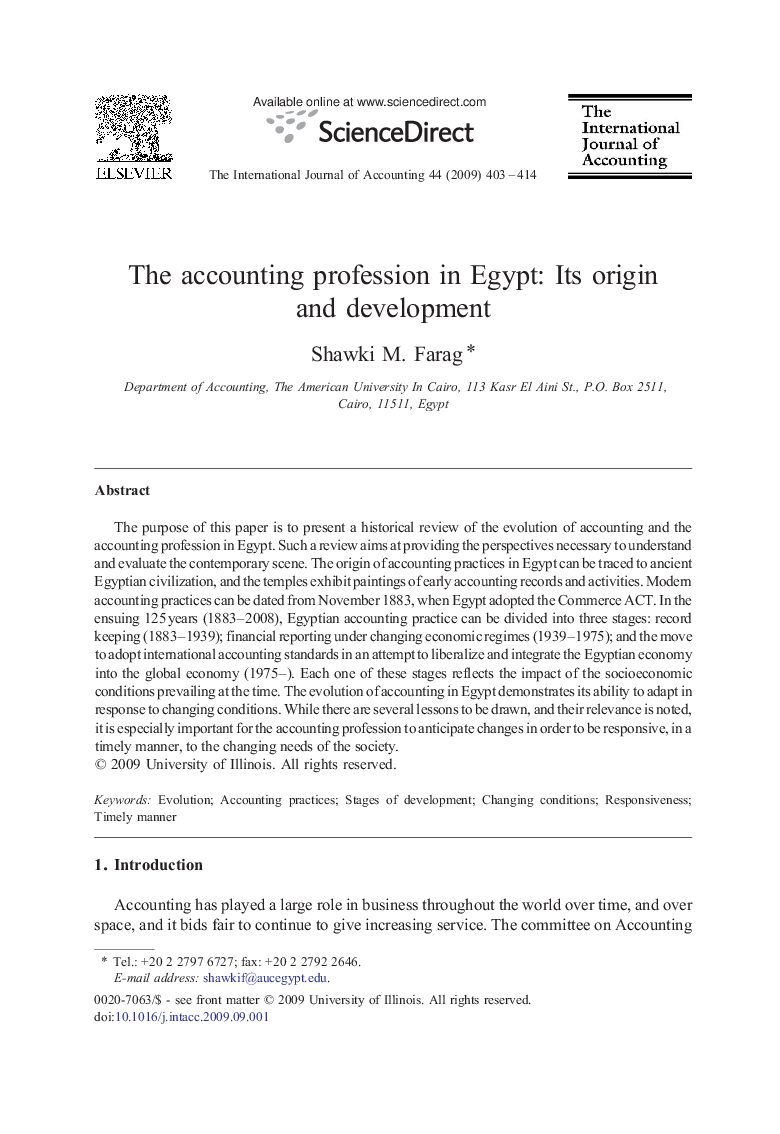| Article ID | Journal | Published Year | Pages | File Type |
|---|---|---|---|---|
| 1005198 | The International Journal of Accounting | 2009 | 12 Pages |
The purpose of this paper is to present a historical review of the evolution of accounting and the accounting profession in Egypt. Such a review aims at providing the perspectives necessary to understand and evaluate the contemporary scene. The origin of accounting practices in Egypt can be traced to ancient Egyptian civilization, and the temples exhibit paintings of early accounting records and activities. Modern accounting practices can be dated from November 1883, when Egypt adopted the Commerce ACT. In the ensuing 125 years (1883–2008), Egyptian accounting practice can be divided into three stages: record keeping (1883–1939); financial reporting under changing economic regimes (1939–1975); and the move to adopt international accounting standards in an attempt to liberalize and integrate the Egyptian economy into the global economy (1975–). Each one of these stages reflects the impact of the socioeconomic conditions prevailing at the time. The evolution of accounting in Egypt demonstrates its ability to adapt in response to changing conditions. While there are several lessons to be drawn, and their relevance is noted, it is especially important for the accounting profession to anticipate changes in order to be responsive, in a timely manner, to the changing needs of the society.
